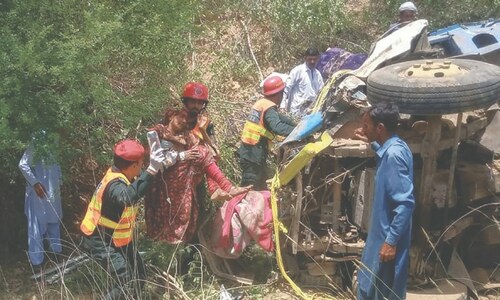WASHINGTON, July 19: The United States has decided to allow India to acquire the same facilities accorded to a member-state of the Nuclear Non-Proliferation Treaty without signing the agreement, a move tantamount to recognizing India as a nuclear weapon state.
The arrangement, hammered out at a White House meeting between US President George Bush and the visiting Indian Prime Minister Manmohan Singh, enables India to secure international help for its civilian nuclear reactors while retaining its nuclear arms. India can now also obtain nuclear fuel for the Tarapur reactors.
“President Bush conveyed his appreciation to the prime minister over India’s strong commitment to preventing WMD proliferation and stated that as a responsible state with advanced nuclear technology, India should acquire the same benefits and advantages as other such states.”
So far these benefits are reserved for five nations – the US, Russia, China, Britain and France – that are recognized as legitimate nuclear states under the NPT.
The accord, announced in a joint statement on Monday evening, calls for the first formal restructuring of the nuclear non-proliferation regime in the last 30 years to accommodate India’s desire for acceptance as a nuclear power.
While the US agreed to amend its own non-proliferation laws and international regimes to grant the new status to India, New Delhi in turn has agreed to undertake the obligations and practices of “a responsible nuclear power.”
The new arrangement will be implemented in a phased manner by a new joint working group in the next few months.
In the joint statement, Mr Bush promised to “seek agreement from Congress to adjust US laws and policies” while also pledging to “work with US friends and allies to adjust international regimes to enable full civil nuclear energy cooperation and trade with India, including but not limited to expeditious cooperation of fuel supplies for safeguarded nuclear reactors at Tarapur.”
In return for this unprecedented commitment from the US, India agreed to “assume the same responsibilities and practices and acquire the same benefits and advantages of other leading countries with advanced nuclear technologies,” such as the five recognized nuclear states.
These responsibilities will include “identifying and separating civilian and military nuclear facilities and programmes in a phased manner,” placing India’s civilian nuclear facilities “under IAEA safeguards,” and “negotiating an additional protocol” with the International Atomic Energy Agency.
India would also continue the moratorium on nuclear testing, work with the US for a fissile materials cut off treaty and maintain responsible export controls.















































Dear visitor, the comments section is undergoing an overhaul and will return soon.